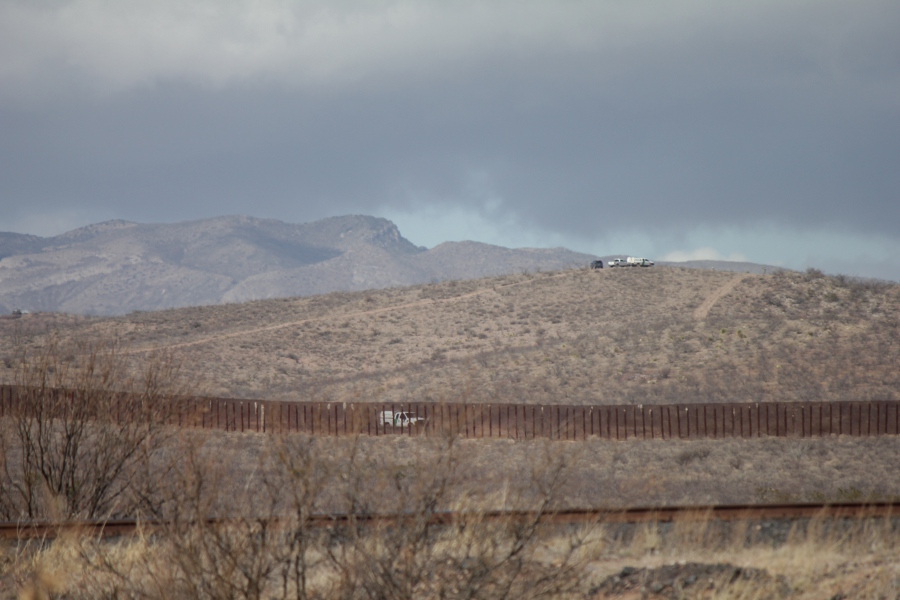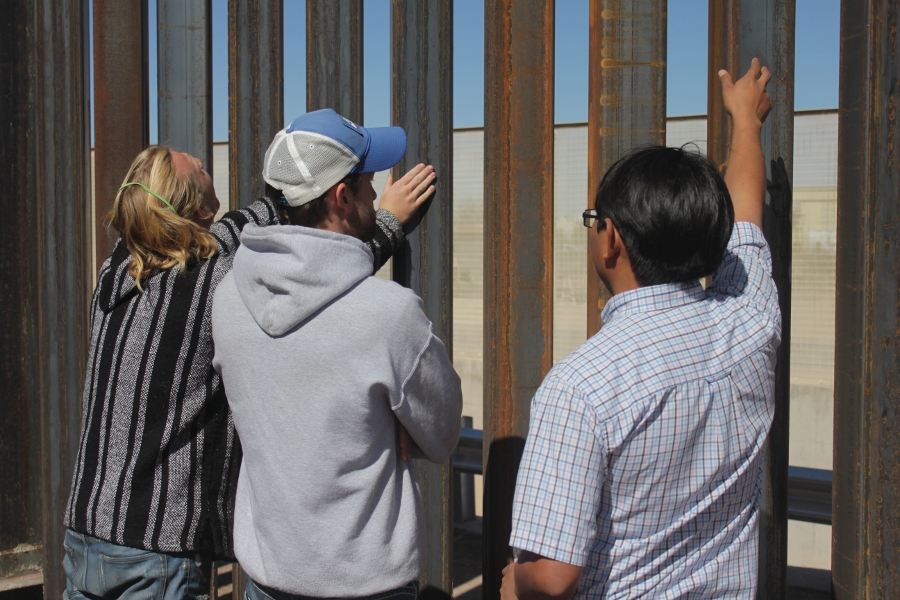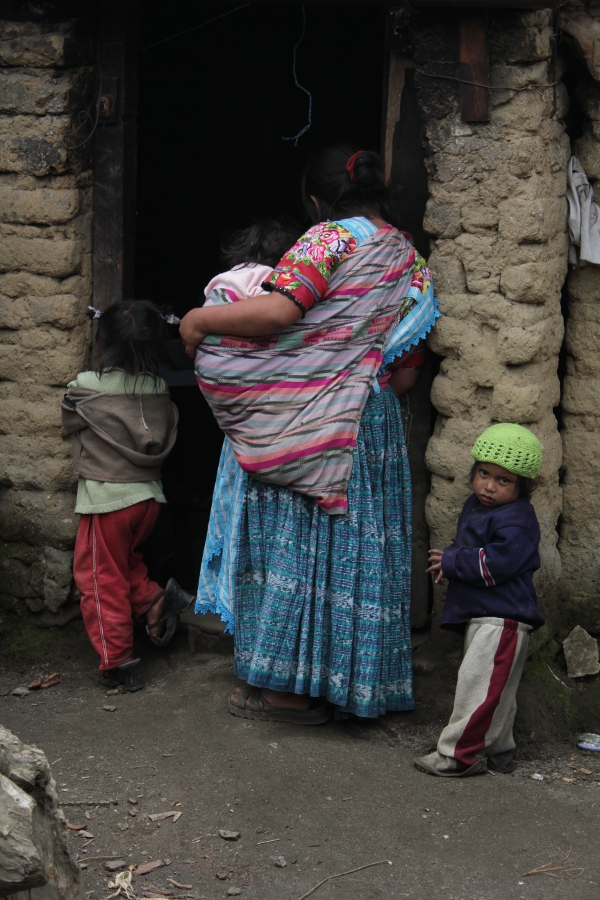This is my April newsletter, now in web format!
A Normal Day and a Little More
My day starts at 4:30, when the small rooster that sleeps in the tree outside my window decides that he has had enough of that sleeping nonsense. He’s one of those little red chickens, a little larger than a Cornish game hen, so his call is high, shrill, and more than enough to wake me up, as my head is lying about twelve feet away, separated only by the mesh screen in my window. About two hours later, sometimes filled with dreams, other times with thoughts of how good roast chicken would taste, my alarm goes off and I dress for the day, pants, long sleeves, and boots. My host grandmother, a wonderful woman of 74 years, has already cut up some fruit and made sandwiches for me. I told her at the beginning of the year I could cook for myself, but after several days of having two lunches, I gave in. Then it’s off to the farm.
I usually arrive on time, as those of you who know me can attest to. Chores occupy the first part of the day, mainly watering what needs to be watered and feeding the animals. My responsibilities are feeding the piglets, getting the sheep their water and silage, and watering the greenhouse where we keep the seedlings and some early tomatoes that are still alive, somehow. The papaya trees down the hill from the sheep also need to be watered every other day, using a bucket and barrel full of water. When George, my boss, is not around, I also feed the cats, dogs, and chickens. This usually fills up the time until nine, when we break for lunch. The time after this is devoted to whatever tasks might be needed. These have been the most varied of my time so far at the farm. I have watered sorghum rows with a 60 foot long hose, made walls with feed bags filled with dirt, plastered said walls with a mixture of manure and dirt, plastered said manure with lime and sand, written schedules for work shops, built nesting boxes for chickens, picked up fallen branches, planted all sorts of vegetables, cleared land with hand tools, chased sheep, taken photos of the farm, taken sows to be impregnated, made observations on the orange tree orchard, made sorghum silo with a tractor, laid out electric fences for pig pastures, scared pigs to stay in their pastures, and about a dozen other things I can’t remember. The day during work is packed with interesting (and sometimes less than captivating) tasks that I never imagined I would be doing a year ago. We take a fifteen minute break at twelve to have some Coca-Cola and a bit of shade. Then we return to our tasks, finishing up at two in the afternoon to feed the animals another time before heading home thirty minutes later.
Then I do nothing. Most of my afternoons are spent reading in my room. On Tuesdays and Thursdays I take a carpentry class with one of my coworkers but the class is only from four to seven, still leaving me plenty of time to spend. You may have read before that I have had trouble with my “leisure time” here in Mexico, that I can’t find friends. Well, that is untrue, I have several friends, all who are above the age of 35 and spend their afternoons either working or passing the time with their children (albeit usually watching T.V.), so I don’t often “hang out” with them, though they do infrequently invite me to fish with them. I am sure the infrequency has something to do with me losing at least three hooks each time I go. So why I don’t I go and find some younger men my own age to hang out with? They are not here.
The ages of men in Tehuixtla seems to jump from 18 immediately to 28, conveniently skipping over my age group. Most of the soccer team I play on is 7 years, or more, younger than me. So where is this missing generation? The answer lies in the state of jobs in town. There are none. No new jobs are being created and many of the old family farms have been bought by large farms that ship their produce to the U.S. and employ seasonal workers. The young men of Tehuixtla have left to find work. I see a few of them hanging out near some of the corner stores, but all tell me these are not the men I want to know, with their new pickups and SUV’s with tinted windows. These are few in number anyways. The rest have moved away, some temporarily or permanently. Like most rural areas, Tehuixtla has bled young men to the larger cities like nearby Cuernavaca. A nephew of my coworker’s, aged 19, moved there this year, but still returns some weekends to play soccer with his old team. Still more have moved to Mexico City, where a trip back home is much more costly and seems to only be undertaken on special occasions, usually bearing gifts that cannot be found locally at reasonable prices, such as appliances and electronics. Still, the jobs in the larger cities are also often scarce, due to all the competition from other fit young men from hundreds of other small pueblos across country. So many end up in the U.S., both with papers and without. What else is there to do when you can’t find a job in your own country? There are a few that turn to the cartels, who happily offer them employment, if it could be called that. The severance pay for quitting such a job is often very literal. Mexico City is a far cry from the pueblos, choked with smog and traffic, living in cramped, unfinished apartments, most searching for jobs rather than finding them. The Federal District does quite well, housing many students, workers, and businessmen, but the poor live outside this city in a city, quite convenient for the federal government, which does not need to provide them utilities, such as plumbing, part of the reason many children have respiratory problems. When faced with such a picture, why not take the chance and cross? Their grandfathers were invited across during World War II, when the U.S. needed the labor, their fathers crossed and the worst that happened was they crossed across a street, the Border Patrol (la migra) caught them and sent them back with a warning. But those who don’t grow up on the border don’t hear the stories from now. They know of the wall, and the deserts, and la migra, but they don’t hear about getting lost in the night when their coyote takes a wrong turn, about being caught and charged in a courtroom with 70 others, about being shipped halfway across the country to be deported into a unfriendly, uncaring city like Tijuana or Piedras Negras. Why not cross?
As it turns out, my family all have resident visas, with three of my uncles living in Houston, and grandchildren spread out all over the lower 48, including one in the military. My coworker’s family is not so lucky, yet all but two of the seven siblings have lived in the U.S. for varying periods of time. They all have stories, some good, some bad. One brother lived for a year sleeping 4 hours a day, working two jobs, and returned with $400 in his pocket, thanks to exorbitant rent, not to mention the taxes he paid to the U.S. government. Another was caught twice by the Border Patrol. The third time, an agent told him a better place to cross, realizing he would end up killing himself otherwise. Another worked for just enough time to save money to buy a house near his parents and moved back to Tehuixtla. All worked all the time, all worked for very low pay, some in restaurants, others in factories. I can tell you that they aren’t murderers, rapists, or any other type of felon. They crossed because they could no longer support their families, or because they wanted to start a family, to start a small business, or to save up some money for their childrens education.
I know that not all who cross have such benign intentions, but does that mean we should simply condemn all who cannot meet the high standards of legal entry? But don’t take my word for it. Look into the requirements for a visa into the U.S., it is much more than Mexico requires of us, who can simply show up at the border and ask. Look into the effects of NAFTA on the Mexican economy, as well as the subsequent move of manufacturers to Southeast Asia. Look at the effects of U.S. government programs, such as how Operation Gatekeeper affects deaths in the desert and Operation Streamline affects our budget, not to mention our human rights record. Don’t simply believe what I say, or what Fox, CNN, NPR, The Houston Chronicle, The New York Times, or any other news outlet has to say. Do some research on your own into how the border is being run and what it is costing our country in more than money.

Looking across the border into Arizona. Several Border Patrol trucks are easily visible.




